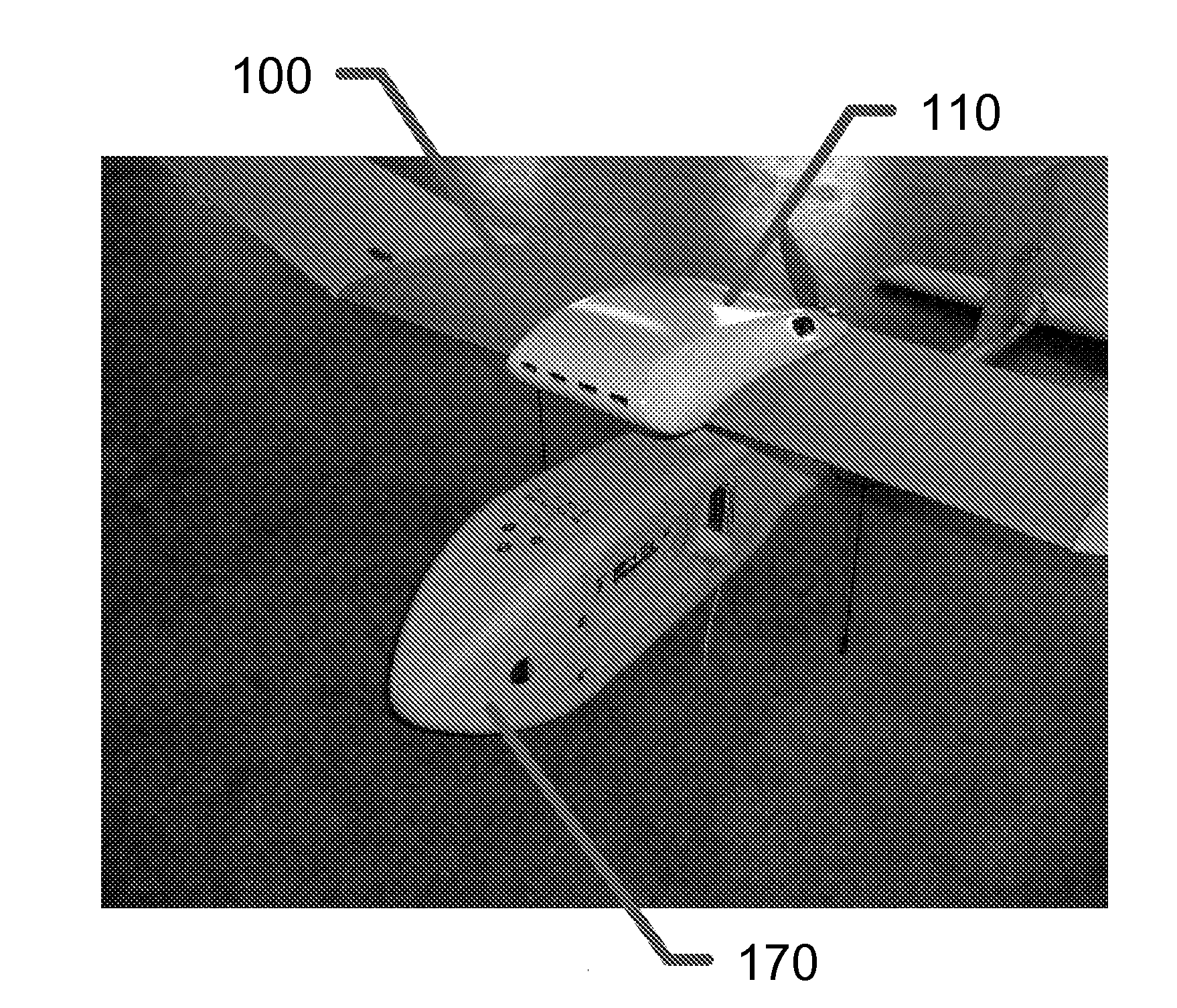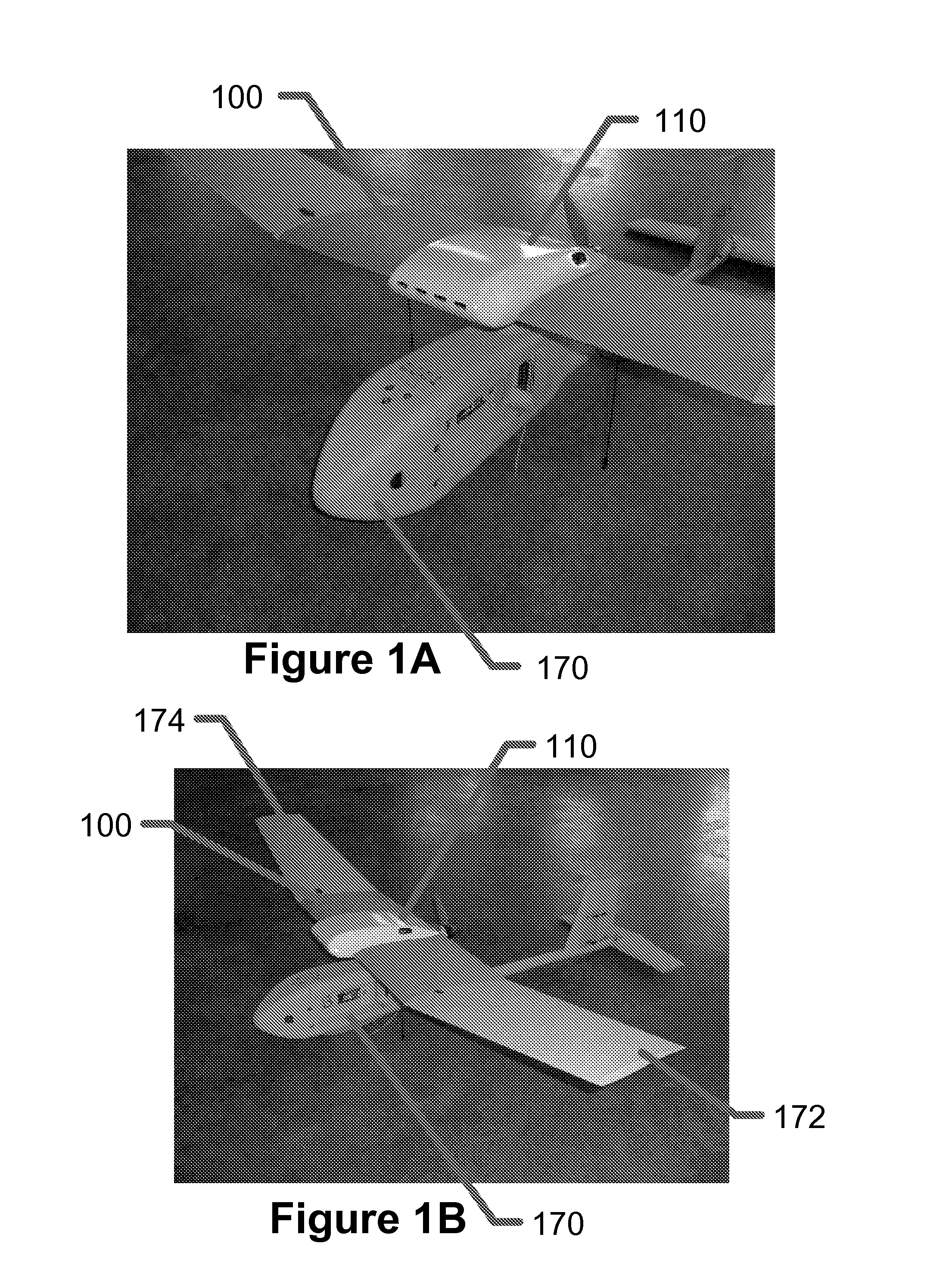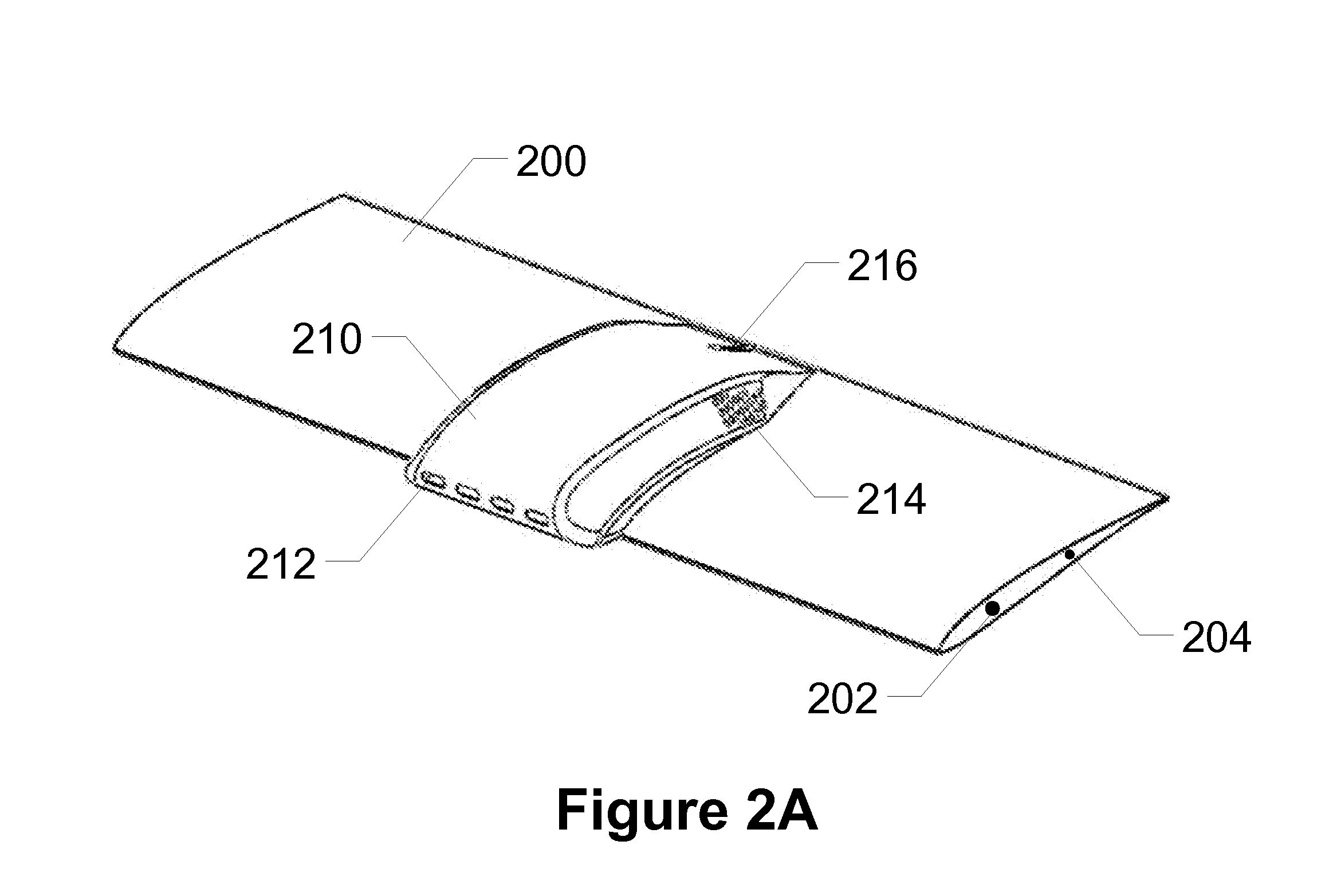Devices, Systems and Methods for Modular Payload Integration for Unmanned Aerial Vehicles
a technology of modular payload and unmanned aerial vehicles, which is applied in the field of wing designs with integrated aerodynamic payload integration systems for unmanned aerial vehicles (uavs), can solve the problems of reducing the efficiency of uavs, so as to reduce the thickness of airfoil and minimize efficiency loss
- Summary
- Abstract
- Description
- Claims
- Application Information
AI Technical Summary
Benefits of technology
Problems solved by technology
Method used
Image
Examples
Embodiment Construction
[0040]The present invention provides systems and methods of providing wing design and flexible payload integration capabilities on existing modularly assembled UAVs. In exemplary embodiments of the present invention a payload cavity is built into a wing of a UAV. The payload cavity comprises a smaller cavity carved out of the wing joined by an optionally larger cavity created by a rigid cover or shell that is coupled with the wing. The rigid cover is shaped such that the union of the cover and wing forms a new airfoil with an increased payload cavity thickness while maintaining aerodynamic quality. The payload cavity can be used to store small electronics such as single-board computers, GPS receivers, extra batteries for longer UAV flights, explosives for offensive UAVs, and other payloads that fit within the cavity footprint and electrical power capabilities. The rigid cover is easily removed to expose the payload cavity so its contents can be removed, replaced, etc.
[0041]“Airfoil,...
PUM
 Login to View More
Login to View More Abstract
Description
Claims
Application Information
 Login to View More
Login to View More - R&D
- Intellectual Property
- Life Sciences
- Materials
- Tech Scout
- Unparalleled Data Quality
- Higher Quality Content
- 60% Fewer Hallucinations
Browse by: Latest US Patents, China's latest patents, Technical Efficacy Thesaurus, Application Domain, Technology Topic, Popular Technical Reports.
© 2025 PatSnap. All rights reserved.Legal|Privacy policy|Modern Slavery Act Transparency Statement|Sitemap|About US| Contact US: help@patsnap.com



